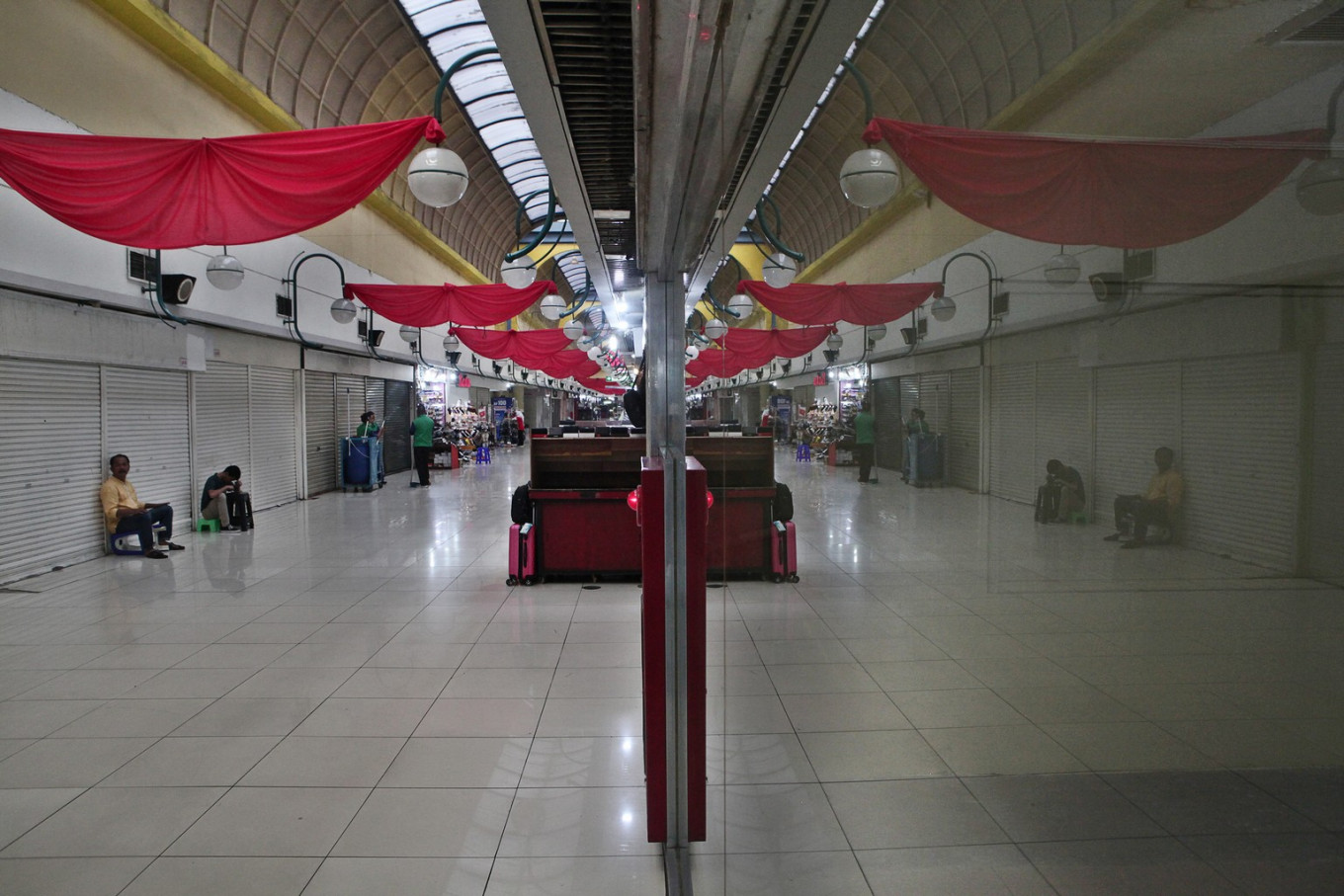Popular Reads
Top Results
Can't find what you're looking for?
View all search resultsPopular Reads
Top Results
Can't find what you're looking for?
View all search resultsFive more months to business as usual: Business players
"The economic recovery from the pandemic would last until 2021 or even the next two years."
Change text size
Gift Premium Articles
to Anyone
B
usiness players expect to resume operations as usual around September or October as businesses are paralyzed and lay off workers in coping with economic shocks from the COVID-19 pandemic.
Indonesian Chamber of Commerce and Industry (Kadin) chairman Rosan Roeslani told The Jakarta Post that business players expected the coronavirus pandemic to peak around June, with the number of patients reaching new heights, before seeing major improvement in September.
“However, the economic recovery from the pandemic would last until 2021 or even the next two years,” he said on Monday. The long rebound period would be especially true for industries most hit by the pandemic such as tourism.
Scientists have predicted that the peak of the coronavirus spread in the country will be around April with around 71,000 cases, as the government accelerates rapid tests to contain the virus. COVID-19 cases in Indonesia had reached 2,491 and 209 deaths as of Monday, among the highest death rates in the world, half of which are in Jakarta.
As President Joko “Jokowi” Widodo announced a public health emergency, with a large scale social distancing policy, some manufacturers have stopped production such as carmakers Suzuki Indonesia and Honda Indonesia. More than 16,000 employees in the capital city have been laid off or had to take unpaid leave as companies grapple with the effect of the coronavirus.
“What businesses can do right now is to maintain liquidity and cash flow,” said Rosan. “Halt nonessential spending to avoid layoffs. What’s important now is to be able to survive during this pandemic.”
Read also: 70 million informal workers most vulnerable during pandemic
MSMEs Association (Akumindo) chairman Ikhsan Ingratubun said the government needed to prepare stimulus for small businesses that employ daily workers most vulnerable from economic shocks. At 70.49 million people, more than half of Indonesia’s workforce are informal workers with minimum or no social safety net at all.
“I ask for relaxation on electricity and water. We don’t have any income. My business closed down, I don’t know how to pay for the holiday bonus (THR),” said Ikhsan, who owns a restaurant chain. “Without a proper policy there will be a social and security threat.”
A recent survey by the Mobile Marketing Association (MMA) and SurveySensum echoes Kadin’s projection, finding that business players expect the situation to normalize within the next five months, or around August.
The survey further stated that the COVID-19 pandemic has brought down the revenue of businesses, with 76 percent of the respondents saying the pandemic had “severely disturbed business’ daily activities.”
Indonesia’s gross domestic product (GDP) growth is expected to slow to 2.3 percent this year, the lowest in 21 years, and even contract by 0.4 percent under the worst case scenario, according to government estimates.
Read also: Indonesia braces for recession, activates crisis protocol
Out of the 80 businesses that were surveyed in March, more than half have cut their hiring budget and out-of-home advertising such as billboards and banners. Meanwhile, 45 percent of respondents said they had cut the market research budget as well.
“But my hunch is the market research budget will rise again because businesses want to know what customers need in times like this,” said SurveySensum founder and CEO Rajiv Lamba at a webinar on April 3.
He went on to say that to cope with the loss caused by the coronavirus, businesses were focusing on maximizing e-commerce platforms and digital media presence as well as changing their supply chain to deliver products to the consumer’s doorstep.
However, demand in some categories on online marketplaces such as beauty and cosmetics, as well as electronics and travel, has been seeing a downward trend, while e-learning platforms and medical consultation are gaining more clients.
Similarly, Facebook Indonesia marketing head Hilda Kitti said SMEs should start going digital, whether through online media advertising or an e-commerce platform to keep their business afloat amid the coronavirus pandemic.
“The pandemic can be an opportunity to connect with customers. How businesses deal with the crisis can influence consumers' perception of the company in the future,” she told the press on March 26.
Read also: COVID-19 impacts across Indonesia’s business sectors: A recap
Hilda went on to say that the main thing for businesses was to survive in the current situation. Ramadhan month, which starts on April 23, can still be an opportunity for businesses to reach out and benefit, especially for SMEs in the food and beverage and fashion sectors, she added.
She also said SMEs should partner with delivery service providers to reach consumers who are self-isolating.
“But don’t do a hard sell. Instead, do strategic marketing such as showing that your business cares about consumer well-being during the pandemic,” Hilda said.










